Smart textiles Circular economy 15-01-2022 - Arhive
Smart textiles Circular economy
-Italian textile machinery manufacturers to exhibit at Colombiatex
As many as 19 Italian textile machinery manufacturers will exhibit in the exhibition area organised by the Italian Trade Agency and the Association of Italian Manufacturers of Textile Machinery (ACIMIT), at Colombiatex 2022 from January 25-27. The Italian textile machinery sector will once again play a leading role in Colombia with a large presence.
Bonino, Btsr, Color Service, Crosta, Fadis, Flainox, Kairos, Mactec, Mcs, Nexia, Ratti, Reggiani, Santoni, Savio, Smit, Sperotto Rimar and Tonello will be the exhibiting ACIMIT member companies at the three-day event, ACIMIT said in a press release.
“For years, the Colombian market has been one of the main South American destinations for Italian textile machinery exports. The development of a national fashion sector makes the demand for advanced textile technologies by Colombian companies even more dynamic,” said Alessandro Zucchi, president of ACIMIT.
Italian exports to the important South American market in the first nine months of 2021 reached a value of €9.3 million, in strong growth (over 130 per cent), not only compared to the value recorded last year, but also to that of 2019.
More than half of the demand for Italian machinery in Colombia refers to finishing machines. Smart textiles Circular economy
“The presence at Colombiatex of Italian companies with their own personnel is a further sign of confidence for the beginning of 2022. Compared to previous editions of the event, we note a greater number of Italian exhibitors, although the health emergency is far from over and there is great uncertainty characterizing the world economic scenario (due to the considerable increase in the cost of raw materials and shipping, the scarcity of electronic components, etc.).
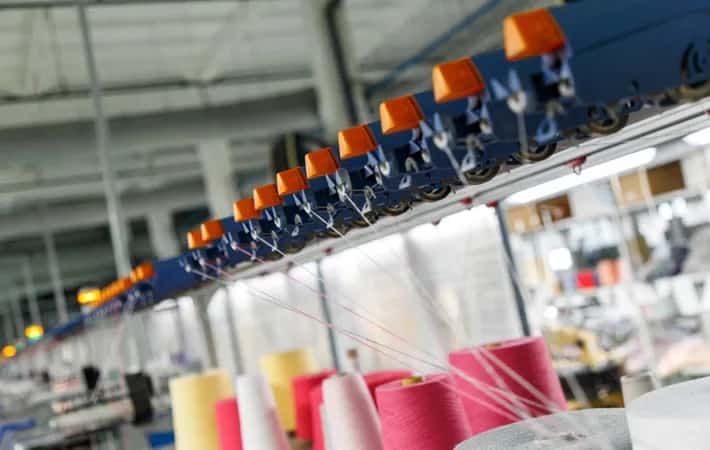
-Japan METI assists Thailand MOI in accelerating economic recovery
The Ministry of Industry (MOI) and the Ministry of Economy, Trade and Industry (METI) of Japan are working closely on strategies to revitalize both countries’ remarkable potentials for economic and industrial development. This is to provide opportunities from the ASIA-Japan Investing for the Future Initiative (AJIF) under Thailand’s Bio-Circular-Green Economy (BCG Model) by jointly developing innovation and technology, human capital capacity, digital technology in SMEs, and supply chain, as well as coping with economic and social changes. Additionally, continues to push its economic expansion in Thailand, investing about 70 billion baht in various projects. Smart textiles Circular economy
The COVID-19 epidemic continues to affect economic activities and industrial sectors in many countries, according to Mr. Suriya Juangroongruangkit, Minister of Industry. As a result, to reinforce a constantly changing setting, a method of rejuvenation is critical. During his visit to Thailand, the MOI discussed ways to restore the economy and industry with Mr. Hagiuda Koichi, Minister of METI, Japan, to find ways to alleviate existing changes and volatility, as well as developing the BCG Model in collaboration with the AJIF by defining a Framework Document on Co-Creation for Innovative and Sustainable Growth. Smart textiles Circular economy
The framework focuses on innovation and technology, human capital capacity, digital technology in SMEs, and supply chain development with the goal of fostering Japanese investment in Thailand, building a regional connection, and exchanging outstanding potential of both countries to jointly create opportunities in various dimensions.
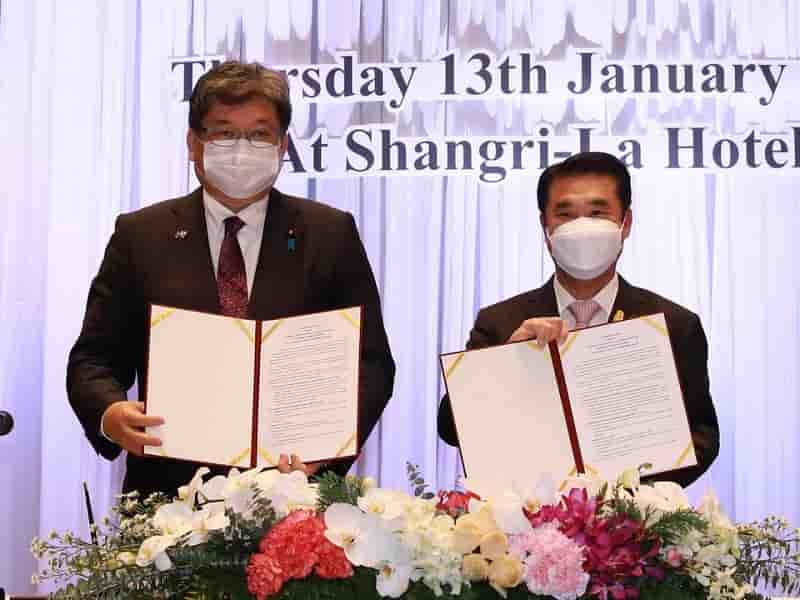
-Ontex Sets Science-Based Targets for Climate Action
Hygiene products manufacturer commits to achieving carbon-neutral operations
Ontex , a leading provider of personal hygiene products and services in more than 110 countries, has formally submitted its climate targets to the Science-Based Target Initiative (SBTI), an initiative supported by the Belgian Alliance of Climate Action (BACA). BACA is a community of Belgium-based organizations that choose the path of science-based targets. These targets provide a clearly defined pathway for companies to reduce greenhouse gas (GHG) emissions, helping prevent the worst impacts of climate change. Smart textiles Circular economy
Ontex commits to achieving carbon-neutral operations by 2030. The company will reduce its own greenhouse gas emissions (also called scope 1 & 2 emissions) by 50% by 2030, compared to the base year 2018. Ontex aims to achieve these goals through energy savings, on-site renewable energy production, purchasing energy from renewable sources, and carbon offsets via reforestation projects.
The Belgium-based personal hygiene group also wants to cut the emissions of its global supply chain (scope 3 emissions) by 25% by 2030, compared to the base year 2020. Ontex wants to reduce the carbon emissions in its supply chain by cooperating with its suppliers and by focusing on sustainable product design and more efficient transport. For example, suppliers are asked to report how they reduce emissions to Ontex on an annual basis. Ontex will report this combined supply chain progress as part of its annual report.
Ontex’s 19 factories on five continents currently run on more than 70% renewable energy. This includes own energy production with rooftop solar power installations in Spain, Belgium, Mexico and a new solar power installation in Italy, which is the country’s largest solar installation for on-site power consumption.
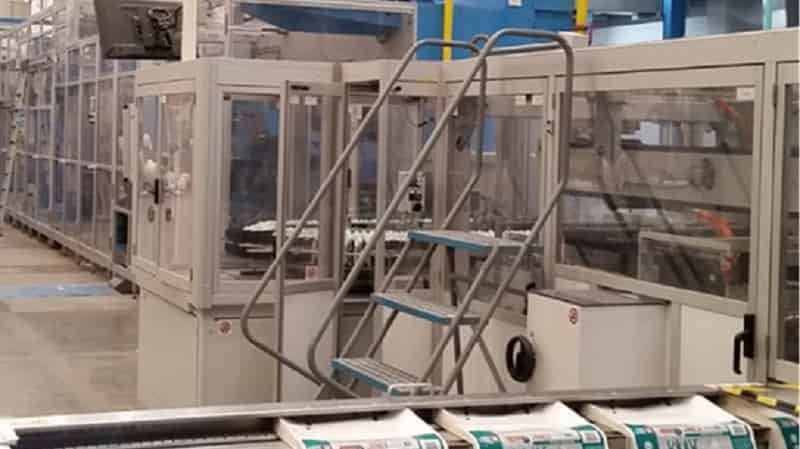
-German researchers are working on the development of the next generation of smart textiles
Researchers at the Leibniz Photonic Technology Institute (IPHT) in Jena, Germany, are developing a self-sufficient energy supply based on fibers. In this way, even in the absence of an external power source, it will be easier to supply energy to mobile electronic devices mounted near the body in the future.
Smart textiles use the warmth of the human body to convert it into electricity. The Leibniz Institute said in a press release that its cooling properties make the new material interesting for safety-related applications while improving comfort and comfort in wearing. Smart textiles Circular economy
Smaller electronic devices that are worn on the body, so-called wearables, check important functions, count steps, and provide traffic and weather information. To continually power these technology companions, researchers at the Leibniz Photonic Technology Institute (Leibniz IPHT), along with the ITP team in Weimar, Germany, and E.CIMA, a Spanish textile manufacturer. The latest intelligent textiles use thermoelectric effects to convert the warmth of the body into electricity. The thermoelectric effect can be stored in the battery.
Researchers at the Leibniz Photonic Technology Institute (IPHT) in Jena, Germany, are developing a self-sufficient energy supply based on fibers. In this way, even in the absence of an external power source, it will be easier to supply energy to mobile electronic devices mounted near the body in the future.
“Our vision is to use textile materials to generate energy. Flexible, demand-focused and environmentally friendly, these smart fabrics are energy-sufficient mobile devices for consumer electronics and health applications.
Smart watches and fitness bracelets are worn directly on the body and can be powered at any time. Vital parameters can be continuously measured and monitored, for example. ” Dr. Jonathan Plentz, Head of Photonic Thin Film Systems Research Group at Leibniz IPHT. Smart textiles Circular economy
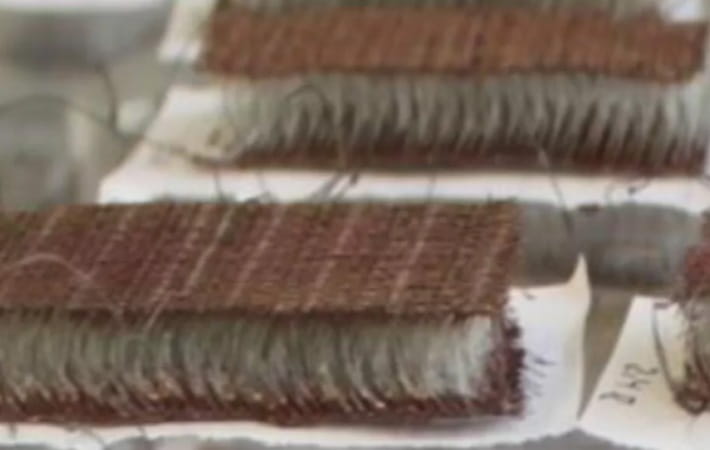
-Dow invests in Mr. Green Africa to accelerate circular economy for plastics in Africa
The investment is intended to address waste management gaps and further expand recycling efforts across the continent. Smart textiles Circular economy
Dow, based in Midland, Michigan, has announced an investment into Mr. Green Africa as part of their Series B fundraising round to enable further diversion of plastic waste from informal dumpsites and the environment.
The investment is the first of its kind in Africa for Dow, which operates 106 manufacturing sites across 31 countries, and according to the company, will drive a positive change in local communities, address inadequacies in existing waste management systems and close the loop on plastics waste across Africa.
“The challenge of plastic waste in Africa is a significant and growing problem, and as a leading materials science company, Dow is in the driver’s seat to have a measurable impact and help to close the loop on plastic waste,” says Adwoa Coleman, sustainability and advocacy manager for packaging and specialty plastics at Dow. “Across Africa, many livelihoods depend on recovering waste materials like plastic, but the benefit of this activity is only supported if there is end-value for the material.” Smart textiles Circular economy
Mr. Green Africa says it plans to expand its operations in Kenya, where it is headquartered, as well as other countries in Africa, further expanding recycling efforts across the continent. With Dow’s investment, the companies expect to recover approximately 90 kilotons of plastic waste over four years and recycle it into new packaging applications.
The companies also aim to co-develop more traceable, fair, high-quality postconsumer resin (PCR) that can be used in the production of new flexible plastic packaging, with a goal of helping brand owners and manufacturers achieve sustainable packaging solutions.
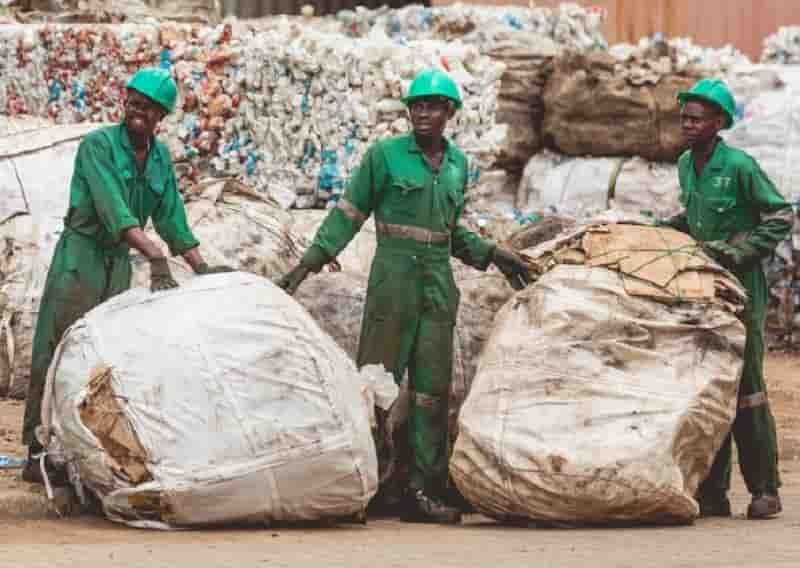
-Gravimetric System is Modular
New components can be integrated over time as need arises.
Movacolor has developed a unique modular system that allows processors to put together a full gravimetric continuous blending system. Up to 15 components can be controlled from just one controller on the MCContinuos Blender. These systems can be installed on one extruder or on coextruders, creating a control platform for multiple continuous blenders in one system. Smart textiles Circular economy
The system grows with future needs. New components can easily be integrated without changes to the controller. The MCContinuous Blender covers most of the available materials like granulates, powders, liquids and even regrinds.
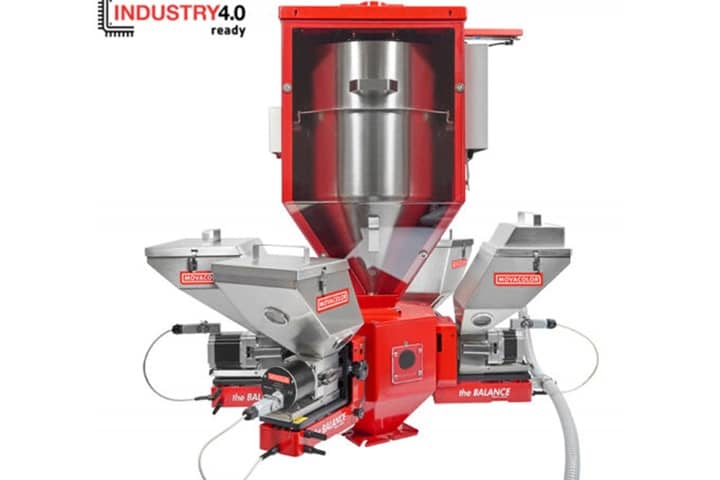
Smart textiles Circular economy
